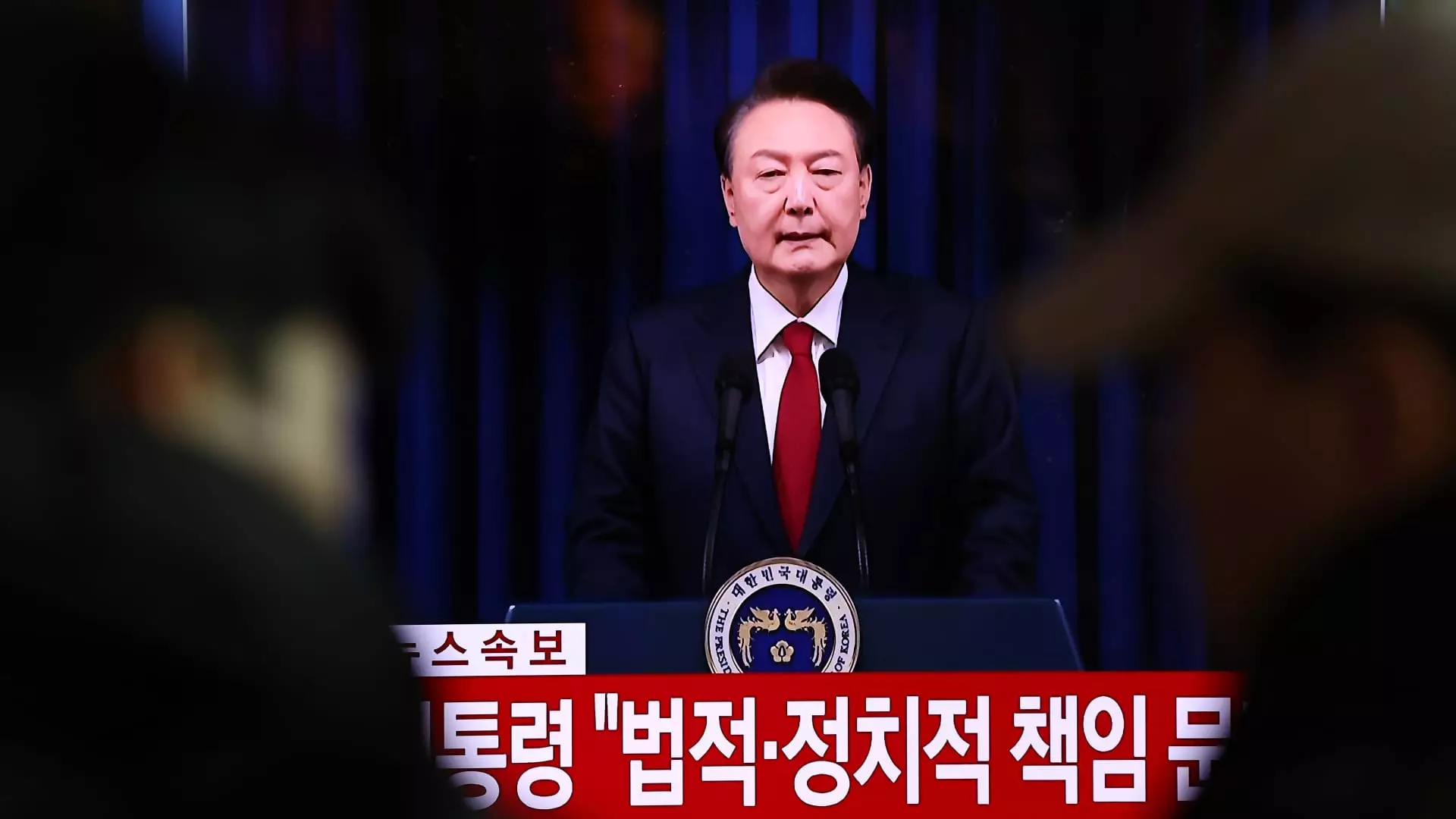South Korea’s political landscape has witnessed significant turbulence since President Yoon Suk Yeol took office in 2022. His recent impeachment serves as a critical juncture in the nation’s democratic journey, reflecting deeper issues within the political fabric of the country. On a consequential Saturday, Yoon was impeached primarily due to the fallout from his brief declaration of martial law on December 3, a controversial move that reignited historical fears stemming from military governance in South Korea. An impeachment vote, once thought improbable mere weeks ago, transpired as public discontent over government actions, stemming from rising scandals and crumbling approval ratings, came to a head.
The impeachment proceedings found their roots in Yoon’s drastic response to perceived threats from factions within the country that he deemed anti-state. His assertion that he aimed to “protect the constitutional order” by imposing martial law raised eyebrows and sparked fierce backlash from opposition lawmakers. This particular incident, which he reversed within six hours, not only violated public trust but also reignited fears of authoritarianism, as many remembered the oppressive military rule that characterized prior generations.
This troubling incident highlighted Yoon’s administration’s fraught relationship with the legislature. The initial impeachment attempt on December 7 failed due to a walkout by many lawmakers from Yoon’s own People Power Party (PPP), signaling fractures within his coalition. However, the tide shifted as PPP leader Han Dong-hoon, amid mounting pressure, indicated support for impeachment. This shift depicted an alarming level of dissent within the ruling party and showcased the precarious nature of Yoon’s position as president.
Public Sentiment and Political Fallout
As the political landscape continued to evolve, public sentiment turned starkly against Yoon. His approval rating plummeted to an alarming 17.3%, a stark reflection of the population’s dissatisfaction. Widespread protests against his administration, echoing calls for resignation from various civil society groups and opposition parties, reinforced the perception that his leadership was faltering. The protests were not merely fueled by the martial law incident but were compounded by ongoing controversies involving his wife, Kim Keon Hee, and broader issues of governance.
Yoon’s response to this unraveling situation was to adopt a defiant stance. In a national address, he dismissed accusations from opposition parties that his actions equated to insurrection, framing them instead as desperate maneuvers by those seeking to destabilize his presidency. This combative rhetoric, while appealing to core supporters, failed to resonate with a broader public that increasingly viewed him as detached from the realities facing everyday citizens.
Beyond political ramifications, Yoon’s impeachment carries significant implications for South Korea’s economy, which plays a critical role in the global landscape. Rapidly evolving sectors like technology and artificial intelligence are pivotal to the nation’s economic framework, and instability in leadership can create uncertainty that deters investment. Observers of the market noted initial jitteriness in response to the crisis, but some experts believe that South Korea’s underlying economic fundamentals remain robust. John Woods, chief investment officer at Lombard Odier, suggested that, although volatility may persist, the country’s status as a major player in tech innovations and AI development could buffer it against potential downturns.
The International Monetary Fund has projected a 2.5% growth for South Korea this year, emphasizing that the economy’s resilience in the face of political upheavals is paramount. However, consistent governance would be necessary to maintain this trajectory, making the upcoming presidential election in the wake of Yoon’s impeachment an event of great significance for both local and global observers.
President Yoon Suk Yeol’s impeachment stands as a poignant reminder of the delicate interplay between leadership, governance, and public trust in South Korea. His attempt to impose martial law—not only a drastic measure but also a demonstration of deep-rooted tensions—has culminated in a significant political shake-up. The unfolding situation sets the stage for a pivotal presidential election that will not only define the future of Yoon’s legacy but also determine the direction of South Korea as it navigates domestic challenges and a complex international landscape. The coming months will be crucial, not only for South Korea’s political stability but for the overall confidence in its economy amid global uncertainties.


Leave a Reply